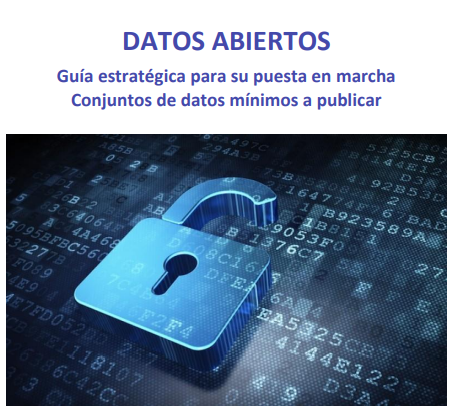
The Ministry for Digital Transformation and Public Administration has launched a grant for the development of Data Spaces for Intelligent Urban Infrastructures (EDINT). This project envisages the creation of a multi-sectoral data space that will bring together all the information collected by local authorities. The project will be carried out through the Spanish Federation of Municipalities and Provinces (FEMP) and will receive a subsidy of 13 million euros, as stated in the Official State Gazette published on Wednesday 16 October.
A single point of access to smart urban infrastructure data
Thanks to this action, it will be possible to finance, develop and manage a multisectoral data space that will bring together all the information collected by the different Spanish municipalities in an aggregated and centralized manner. It should be recalled that data spaces enable the voluntary sharing of information in an environment of sovereignty, trust and security, established through integrated governance, organisational, regulatory and technical mechanisms.
EDINT will act as a single neutral point of access to smart city information, enabling companies, researchers and administrations to access information without the need to visit the data infrastructure of each municipality, increasing agility and reducing costs. In addition, it will allow connection with other sectoral data spaces.
The sharing of this data will help to accelerate technological innovation processes in smart city products and services. Businesses and organisations will also be able to use the data for the improvement of processes and efficiency of their activities.
The Spanish Federation of Municipalities and Provinces (FEMP) will implement the project.
The EDINT project will be articulated through the Spanish Federation of Municipalities and Provinces.The FEMP reaches more than 95% of the Spanish population, which gives it a deep and close knowledge of the needs and challenges of data management in Spanish municipalities and provinces.
Among the actions to be carried out are:
- Development and implementation of the data infrastructure and platform, which will store data from existing Smart City systems.
- Incorporation of local entities and companies interested in accessing the data space.
- Development of three use cases on the data space, focusing on the following areas: "smart mobility", "managed cities and territories" and "mapping the economic and social activity of cities and territories".
- Definition of the governance schemes that will regulate the operation of the project, guaranteeing the interoperability of the data, as well as the management of the complex network of stakeholders (companies, academic institutions and governmental organisations).
- Setting up Centres of Excellence and Data Offices, with physical workspaces. These centres will be responsible for the collection of lessons learned and the development of new use cases.
It is a ongoing and sustainable long-term project that will be open to the participation of new actors, be they data providers or data consumers, at any time.
A project aligned with Europe
This assistance is part of the Recovery, Transformation and Resilience Plan, funded by the European Union-Next Generation EU. The creation of data spaces is envisaged in the European Data Strategy, as a mechanism to establish a common data market to ensure the European Union's leadership in the global data economy. In particular, it aims to achieve the free flow of information for the benefit of businesses, researchers and public administrations.
Moreover, data spaces are a key area of the Digital Spain 2026 Agenda, which is driving, among other issues, the acceleration of the digitalisation processes of the productive fabric. To this end, sectoral and data-intensive digitalisation projects are being developed, especially in strategic economic sectors for the country, such as agri-food, mobility, health, tourism, industry, commerce and energy.
The launch of the EDINT project joins other previously launched initiatives such as funding and development grants for use cases and data space demonstrators, which encourage the promotion of public-private sectoral innovation ecosystems.
Sharing data under conditions of sovereignty, control and security not only allows local governments to improve efficiency and decision-making, but also drives the creation of creative solutions to various urban challenges, such as optimising traffic or improving public services. In this sense, actions such as the Data Spaces for Smart Urban Infrastructures represent a step forward in achieving smarter, more sustainable and efficient cities for all citizens.


